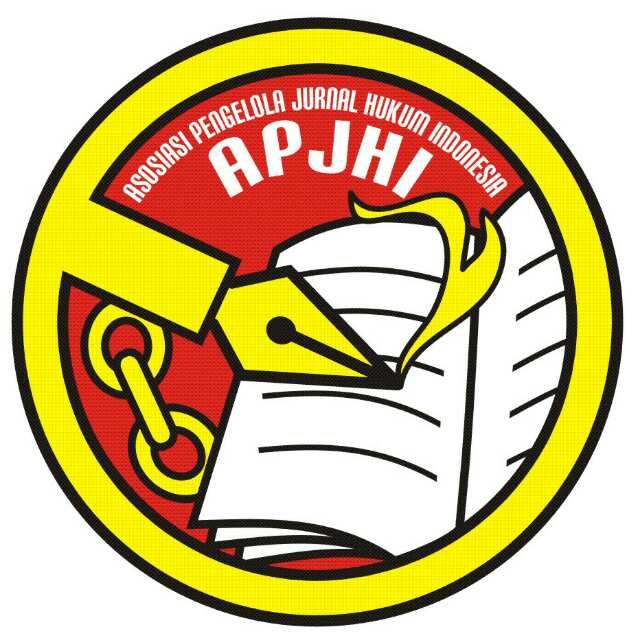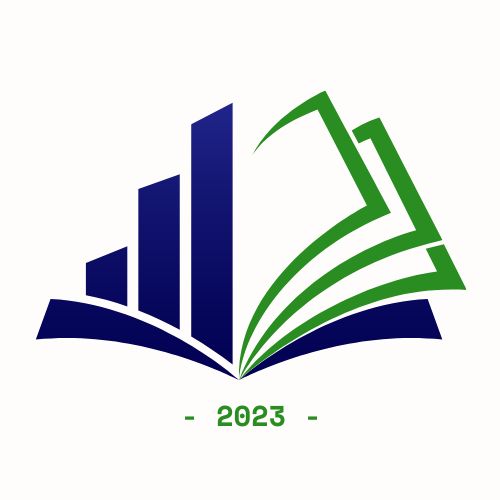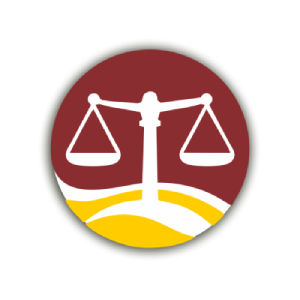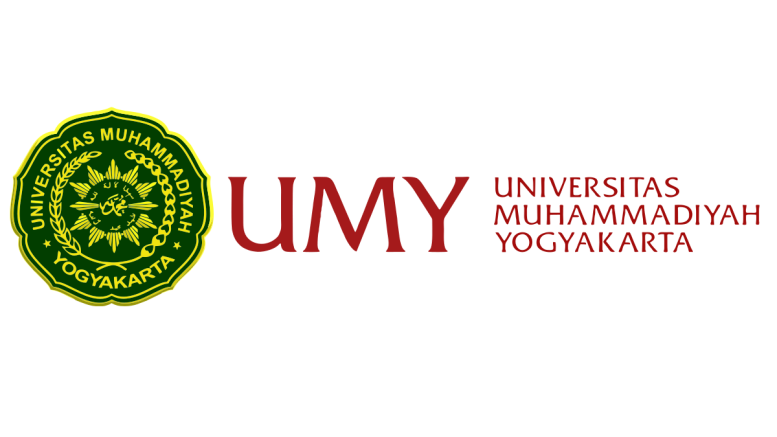The Polemic of Commercializing Modified Applications for Copyright Justice: Between Text and Context
DOI:
https://doi.org/10.33506/js.v11i3.4306Keywords:
Application commercialization, Copyright, Modified applicationAbstract
The study aims to analyze the polemic of commercialization of modified applications in copyright enforcement through an integrative approach between legal certainty, justice and expediency.
The method of research used by the author is the normative juridical method, using secondary data, in the form of primary legal materials such as Law Number 28 of 2014 concerning Copyright and its implementing regulations; secondary legal materials in the form of legal literature, journal articles, research results, legal news and legal opinion articles which are then analyzed deductively.
The novelty of this research lies in the assessment of copyright law that has not reflected substantive justice in the face of infringement through the commercialization of modified applications, using the approach of Hans Kelsen's Stufenbau theory and Gustav Radbruch's Integrative theory.
The results show that the polemic of copyright enforcement against modified applications is mulltidimensional. On the legal side, the unclear norms in the Copyright Law regarding application modification activities, the weak monitoring and enforcement system, and the lack of technical regulations (PP and Permenkumham) governing digital applications. On the other hand, social, cultural, and economic factors such as low legal awareness, the rampant culture of using modified applications, and the economic inability of the community also exacerbate this illegal commercialization practice.
The conclusion is that copyright enforcement of modified applications is not optimal due to the gap between normative regulation and practice. Based on Gustav Radbruch's integrative theory, the solutions offered include: (1) from the aspect of justice, the government needs to change the complaint offense into an ordinary offense for application copyright infringement and issue special regulations in the form of Government Regulations or Permenkumham for the protection of digital applications, coupled with improving the integrity of law enforcement officials; (2) from the aspect of legal certainty, it is important to revise Article 52 of the Copyright Law and strengthen supervision of the distribution of modified applications by e-commerce; and (3) from the aspect of expediency, solutions include public education, the use of open source applications as an alternative, open source application development, more affordable pricing strategies, to inclusive payment systems by official developers.
References
Alliance, Business Software. Software Management: Security Imperative, Business Opportunity, 2018. https://www.bsa.org/globalstudy.
Amelia, Mei. “Polisi Tangkap Penjual Software Microsoft Windows Bajakan di Glodok.” detiknews, 2016. https://news.detik.com/berita/d-3232073/polisi-tangkap-penjual-software-microsoft-windows-bajakan-di-glodok.
Andembubto, David Roland, Jonathan Iliya Apuru, dan Siyani Dogo Ezra. “Software Piracy in Nigeria.” Asian Journal of Research in Computer Science 6, no. 1 (2020): 1–13. https://doi.org/10.9734/ajrcos/2020/v6i130148.
Basrul, Basrul, Sari Vivianie, dan Bustami Yusuf. “Studi Evaluasi Penggunaan Software Bajakan Di Kalangan Mahasiswa Ftk Uin Ar-Raniry.” Cyberspace: Jurnal Pendidikan Teknologi Informasi 2, no. 1 (2018): 37–47. https://doi.org/10.22373/cs.v2i1.2663.
Business Software Alliance. “Software Management: Security Imperative, Business Opportunity,” 2018. https://www.bsa.org/files/2019-02/2018_BSA_GSS_Report_en_.pdf.
Chaterine, Rahel Narda. “Bareskrim Tangkap 13 Tersangka Kasus Penipuan APK Android, Kerugian Capai Rp 12 Miliar.” Kompas.com, 2023. https://nasional.kompas.com/read/2023/01/19/18211941/bareskrim-tangkap-13-tersangka-kasus-penipuan-apk-andorid-kerugian-capai-rp.
Das, Saini, dan Arunabha Mukhopadhyay. “Managing Dwindling Online Music Sales: Analyzing Factors Affecting Global Music Piracy.” In Association for Information Systems Electronic Library (AISeL), 1–11, 2020.
Fadli, M. Nur. “Hans Kelsen: Positivisme Hukum, Grundnorm, dan Stufenbau Theory.” LSF Discourse, 2024. https://lsfdiscourse.org/hans-kelsen-positivisme-hukum-grundnorm-dan-stufenbau-theory/.
“Happy Mod,” 2024. https://ind.happymod.com/.
Hasibuan, Muhammad Azhari. “Perlindungan Hukum Bagi Pemegang Hak Cipta Atas Pelanggaran Modifikasi Dan Penggunaan Musik Atau Lagu Berdasarkan Undang-Undang Nomor 28 Tahun 2014 Tentang Hak Cipta.” Jurnal Notarius 1, no. 2 (2022): 216–25.
Hassan, Ahmad Mohammad, dan Ayuba John. “Comparative analysis on different software piracy prevention techniques.” International Journal of Informatics and Communication Technology (IJ-ICT) 10, no. 1 (2021): 1–8. https://doi.org/10.11591/ijict.v10i1.pp1-8.
Hidayatullah, Rahmat, dan Busro Karim. “Tinjauan Maslahah Terhadap Penggunaan Software Bajakan Oleh Organisasi Karang.” Jurnal Kaffa 1, no. 4 (2022): 1–19.
Idris, Julizar Idris, dan Achmad Supandi. “Evaluasi Kebijakan Undang-Undang Informasi dan Transaksi Elektronik di Indonesia; Potret Bibliometric Analysis.” Transparansi : Jurnal Ilmiah Ilmu Administrasi 7, no. 1 (2024): 149–62. https://doi.org/10.31334/transparansi.v7i1.3709.
Indonesia, CNN. “Tokopedia, Bukalapak, Shopee Masuk Daftar Pengawasan AS.” CNN Indonesia, 2022. https://www.cnnindonesia.com/ekonomi/20220222071139-92-762186/tokopedia-bukalapak-shopee-masuk-daftar-pengawasan-as.
Indonesia. Peraturan Menteri Hukum dan Hak Asasi Manusia Nomor 15 Tahun 2024 tentang Pengelolaan Royalti atas Lisensi Penggunaan Sekunder untuk Hak Cipta Buku dan/atau Karya Tulis Lainnya. https://jdih.dgip.go.id/produk_hukum/view/id/135/t/pengelolaan+royalti+atas+lisensi+penggunaan+sekunder+untuk+hak+cipta+buku+danatau+karya+tulis+lainnya.
Indonesia. Peraturan Menteri Hukum dan Hak Asasi Manusia Republik Indonesia Nomor 20 Tahun 2021 tentang Peraturan Pelaksanaan Peraturan Pemerintah Nomor 56 Tahun 2021 tentang Pengelolaan Royalti Hak Cipta Lagu dan/atau Musik. https://jdih.dgip.go.id/produk_hukum/view/id/108/t/permenkumham+no+9+tahun+2022+tentang+pelaksanaan+pp+no+56+tahun+2021+tentang+pengelolaan+royalti+hak+cipta+lagu+danatau+musik.
Indonesia. Peraturan Pemerintah Republik Indonesia Nomor 56 Tahun 2021 tentang Pengelolaan Royalti Hak Cipta Lagu dan/atau Musik. https://jdih.dgip.go.id/produk_hukum/view/id/99/t/peraturan+pemerintah+nomor+56+tahun+2021+tentang+pengelolaan+royalti+hak+cipta+lagu+danatau+musik.
Indonesia. Undang-Undang Republik Indonesia Nomor 28 Tahun 2014 tentang Hak Cipta. https://peraturan.bpk.go.id/details/38690.
Jerry, Vendryan, Agus Yanto, Dimas Firmansyah Nasution, Vincent Vannesse Ting, dan Hendi Sama. “Pelanggaran Etika Sistem Informasi Dalam Penggunaan Software Bajakan.” Jurnal Sistem Informasi, Teknologi Informasi, dan Edukasi Sistem Informasi 4, no. 1 (2023): 19–30. https://doi.org/https://doi.org/10.25126/justsi.v4i2.140.
Jha, Amit Kumar, dan Priyanka Rajan. “Copyright piracy and education.” International Journal of Intellectual Property Management 13, no. 12 (2023): 149–78. https://doi.org/10.1504/ijipm.2022.10047854.
Jusuf, Muhamad Baharuddin, dan Adara Khalfani Mazin. “Penerapan Teori Hans Kelsen Sebagai Bentuk Upaya Tertib Hukum di Indonesia.” Das Sollen: Jurnal Kajian Kontemporer Hukum dan Masyarakat 2, no. 1 (2023): 1–25. https://doi.org/10.11111/dassollen.xxxxxxx.
Komara, Dadang, Muhammad Fauzan, dan Elan Jaelani. “Perlindungan Hukum Bagi Pencipta Perangkat Lunak (Software) Terhadap Pembajakan Ditinjau Dari Uu No 28 Tahun 2014 Tentang Hak Cipta.” Jurnal Forum Studi Hukum dan Kemasyarakatan 4, no. 2 (2022): 80–93. https://doi.org/10.15575/vh.v4i2.
Mafazi, Muhammad Afif. Kesadaran Hukum Penggunaan Software Bajakan Oleh Pelaku Usaha Jasa Instalasi Software di Malang. Pharmacognosy Magazine. Vol. 75, 2021. http://etheses.uin-malang.ac.id/id/eprint/31492.
Muhaimin. Metode Penelitian Hukum. Mataram: Mataram University Press, 2020.
Muslih, Mohammad. “Negara Hukum Indonesia Dalam Perspektif Teori Hukum Gustav Radbruch (Tiga Nilai Dasar Hukum).” Legalitas 4, no. 1 (2013): 130–52.
Muslim, Abdul. “Pengguna Smartphone RI Diprediksi 194 Juta.” Investor.id, 2024. https://investor.id/business/353856/pengguna-smartphone-ri-diprediksi-194-juta.
Omar, Nor Astiqah, Zeti Zuryani Mohd Zakuan, dan Rizauddin Saian. “Software Piracy Detection Model Using Ant Colony Optimization Algorithm.” Journal of Physics: Conference Series 855, no. 1 (2017): 1–8. https://doi.org/10.1088/1742-6596/855/1/012031.
Purba, Patricia Karin, dan I Made Sarjana. “Perlindungan hukum hak cipta terhadap perbuatan modifikasi aplikasi berbayar yang menimbulkan kerugian.” Jurnal Kertha Negara 11, no. 6 (2023): 626–38. https://ojs.unud.ac.id/index.php/kerthanegara/article/view/100430.
Putri, Sekar Balqis Safitra Rizki Wahyudia. “Analisis teori tujuan hukum gustav radbruch dalam kedudukan majelis penyelesaian perselisihan medis dalam undang - undang nomor 17 tahun 2023 tentang kesehatan.” Sangaji: Jurnal Pemikiran Syariah dan Hukum 08, no. 2 (2024): 315–26. https://doi.org/10.52266/sangaji.v8i2.3463 Journal.
Rahman, Faria, dan Payal Pandey. “Online Software Piracy and Its Related Laws.” Social Science Research Network Electronic Journal, 2020, 1–9. https://doi.org/10.2139/ssrn.3648512.
Rayintama, I Gde Akhila, dan I Made Udiana. “Pengaturan Perlindungan Hukum Atas Aplikasi Mobile Ditinjau Dari Hak Cipta.” Jurnal Kertha Desa 8, no. 9 (2020): 1–9. https://ojs.unud.ac.id/index.php/kerthadesa/article/view/66315.
Ridwansyah, Naufal Nabiil, dan Handar Subhandi Bakhtiar. “Analisis Yuridis Tindakan Pembajakan Film Berhubungan dengan Undang-Undang Hak Cipta.” Jurnal hukum 8, no. 1 (2023): 22–32. https://doi.org/https://doi.org/10.35706/positum.v8i1.8979.
Rusly, Muh. Habibi Akbar, dan Mukti Fajar ND. “Mekanisme Pembayaran Royalti Lagu Dan Musik Dalam Aplikasi Streaming Musik.” Media of Law and Sharia 1, no. 2 (2020): 81–94. https://doi.org/10.18196/mls.v1i2.8344.
Rusniati. “Faktor-Faktor Penyebab Pelanggaran Terhadap Hak Cipta.” Varia Hukum, no. 39 (2018): 1566–80.
Sari, Rita Puspita. “PDN diserang Hacker, Seberapa Lemah Keamanan Siber Indonesia?” Cloud Computing Indonesia, 2024. https://doi.org/https://doi.org/10.31334/transparansi.v7i1.3709.
Sitorus, Angelia Pratiwi Mastiurlani Christina. “Aplikasi Whatsapp Bajakan sebagai Ancaman Kejahatan Siber di Indonesia.” Arus Jurnal Sosial dan Humaniora (AJSH) 4, no. 1 (2024): 157–62. https://doi.org/https://doi.org/10.57250/ajsh.v4i1.355.
Solikhin, Nur. Pengantar Metodologi Penelitian Hukum. Pasuruan: CV. Penerbit Qiara Media, 2019.
Stefwandi, Daniel Stefan, dan Pande Yogantara S. “Perlindungan Kekayaan Intelektual Software Dalam Tatanan Hukum Indonesia.” Jurnal Kertha Desa 11, no. 2 (n.d.): 1703–13. https://newssetup.kontan.co.id/news/pada-tahun-.
Taupiqqurrahman, Alivia Putri Aina, dan Syamsul Hadi. “Perlindungan Hak Cipta Terkait Pelanggaran Modifikasi Karya Ciptaan Asing Yang Dilakukan Tanpa Izin Di Indonesia.” Supremasi : Jurnal Hukum 4, no. 1 (2021): 95–108. https://doi.org/10.36441/supremasi.v4i1.548.
Wulandari, Fenny. “Problematika Pelanggaran Hak Cipta di Era Digital.” Journal of Contemporary Law Studies 2, no. 2 (2024): 99–114. https://doi.org/10.47134/lawstudies.v2i2.2261.
Yanto, Oksidelfa. Negara Hukum: Kepastian, keadilan, dan kemanfaatan Hukum (Dalam Sistem Peradilan Pidana Indonesia). Pustaka Reka Cipta. I. Bandung: Pustaka Reka Cipta, 2020.
Downloads
Published
How to Cite
Issue
Section
License
Copyright (c) 2025 Hasbi Hasbi, Nadia Nadia, Nursalam Rahmatullah

This work is licensed under a Creative Commons Attribution-ShareAlike 4.0 International License.











